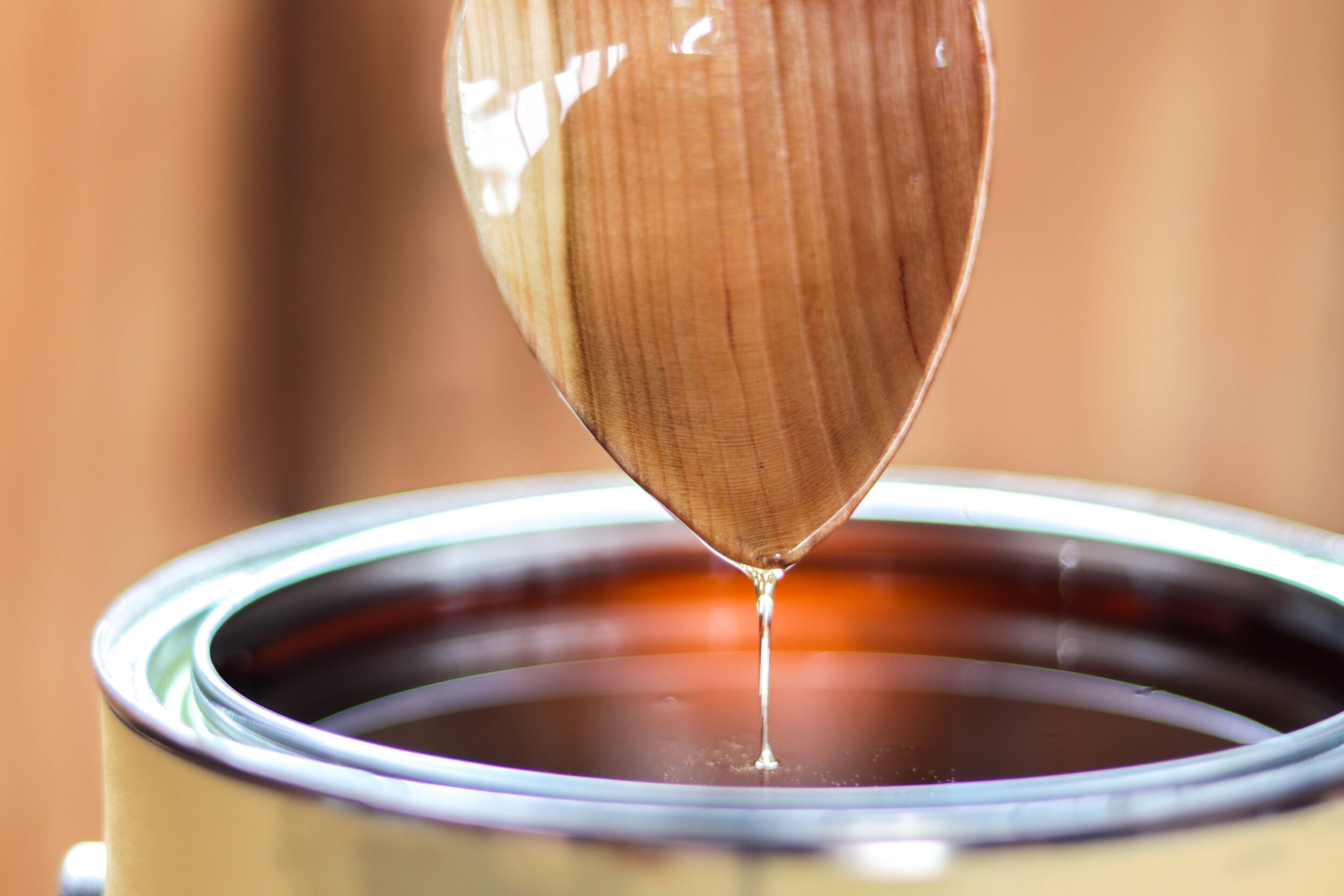The Best Finishes for Spoons
A lot of folks get into spoon carving, make some utensils, then fret about what to coat them in before they’re ‘safe’ to use. Truth be told, you don’t need to coat them in anything. All the best spoon carving woods are completely safe to chew on. However, some sort of finish will help slow down staining. If that’s important to you, here are my suggestions.
Drying oils
Linseed, safflower, poppy, walnut and soybean are all great oils for two reasons:
They’re all used as cooking oils / dressings
They polymerize
If you’re smearing something on a cooking utensil, you want to be confident that it’s food safe. Don’t fret over trying to out whether this lacquer or that poly-something-or-other has some sort of food safe approval. It’s easy enough to stick with finishes that are themselves food. Some people ask about allergies, mainly when talking about walnut oil. From the research I’ve done, it appears that the proteins causing reactions in people with nut allergies aren’t present in the oil. If this is a concern for you, I advise doing your own research.
Oils that polymerize are sometimes referred to as drying oils. ‘Drying’ can be a little misleading. The oils harden by reacting with (mainly) oxygen. Most will dry quicker in a warmer environment, some like a bit of UV to help the process. In the right conditions, all the above oils will change from a liquid to a solid.
This isn’t to say that drying oils are perfect. They can take ages to properly dry. On the scale of months if you don’t have the right conditions. If you’re using utensils before the oil has properly cured (the oil no longer gives off an odour) then you might find yourself eating linseed flavour everything for a while.
These oils can also go bad. Stored in an airtight container in cool, dark conditions and they’ve got a pretty healthy shelf-life, but while in its liquid form it can turn rancid. This can also occur once you’ve smeared good oil over your utensils. Try to make sure the oil has a chance to cure before stuffing the spoons away in a dark kitchen drawer.
Milk
Dunk your utensils in a vat of skimmed milk, bring to the boil, simmer for a couple of minutes then turn off the heat and let cool. Remove the utensils, give them a wipe down and let them dry. You’ve now sealed your spoons with milk!
Milk has a kind of protein called casein that forms a sort of plastic coating. Make sure you’re using skimmed milk, as it’s the milk fats which lead to that spoiled milk smell.
I’ve finished turned creamer jugs using this method. They’re 100% waterproof and there’s been no spoiled milk smell. For turned vessels, it was a quicker method to create a taste-free finish than waiting for a drying oil to fully cure. I did however lose a couple of jugs to splits from the process, so my method for sealing jugs might need a bit of refinement.
Utensils are much less likely to split, so that’s not so much of an issue. This process also has the advantage of not yellowing the wood as much as oils do.
Finishes I Avoid
Non-drying oils (mineral, coconut, peanut, olive, rapeseed) aren’t good choices. Since they remain liquid they will either slough off into your cooking or get washed off when you next clean the utensil. So you need to keep reapplying for them to be effective.
Any sort of wax finish has similar issues. While they will dry and harden, waxes have such a low melting point that in hot food they’re likely to melt and disappear. Not ideal.
Boiled linseed oil has chemical additives to speed up the drying. In theory, those additives will have evaporated once the oil has dried. From what I understand, according to the FDA any clear wood finish that dries to a hard film is considered food safe. I’m a little distrustful of this analysis. Not for any rigorous scientific reasons, but coating a handmade wooden utensil or vessel in finishes that often have “This product contains chemicals known to the State of California to cause cancer and birth defects or other reproductive harm” printed on them somewhere doesn’t quite sit right with me. Better off sticking to using a salad dressing.
What’s your favourite finish for spoons? Leave a comment to let me know.

